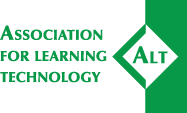Riley, David (2002) Simulation modelling: Educational development roles for learning technologists. Association for Learning Technology Journal, 10 (3). pp. 54-69. ISSN 0968-7769
|
PDF
Available under License Creative Commons Attribution Non-commercial No Derivatives. Download (1MB) | Preview |
Abstract
Simulation modelling was in the mainstream of CAL development in the 1980s when the late David Squires introduced this author to the Dynamic Modelling System. Since those early days, it seems that simulation modelling has drifted into a learning technology backwater to become a member of Laurillard's underutilized, ‘adaptive and productive’ media. Referring to her Conversational Framework, Laurillard constructs a pedagogic case for modelling as a productive student activity but provides few references to current practice and available resources. This paper seeks to complement her account by highlighting the pioneering initiatives of the Computers in the Curriculum Project and more recent developments in systems modelling within geographic and business education. The latter include improvements to system dynamics modelling programs such as STELLA®, the publication of introductory textbooks, and the emergence of online resources. The paper indicates several ways in which modelling activities may be approached and identifies some educational development roles for learning technologists. The paper concludes by advocating simulation modelling as an exemplary use of learning technologies ‐ one that realizes their creative‐transformative potential.
| Item Type: | Article |
|---|---|
| Subjects: | L Education > LB Theory and practice of education L Education > LC Special aspects of education > LC1022 - 1022.25 Computer-assisted Education |
| Divisions: | ALT-J Journal |
| Depositing User: | Justin Smith |
| Date Deposited: | 10 Apr 2009 10:39 |
| Last Modified: | 04 Apr 2011 09:11 |
| URI: | http://repository.alt.ac.uk/id/eprint/389 |
Actions (login required)
 |
View Item |
